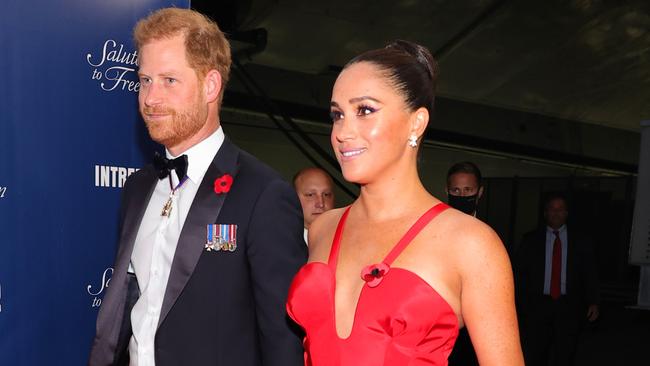When royals scrap with commoners it isn’t a fair fight
Mix royals and legal proceedings and it is a recipe for serious anger and a sense that justice is not being done.

When does royalty stop being royalty? Answer: when everything is dragged through the courts.
For centuries the British family has avoided this form of scrutiny, not only because it is embarrassing but because of the awkward grey areas it creates and the basic bad messaging.
You can’t pretend to be above everything – neutral, apolitical, even godly – if you are scrapping with the plebs in some lowly court.
Mix royals and legal proceedings and it is a recipe for serious anger and a sense that justice is not being done. For example: in the case between the Duchess of Sussex and The Mail on Sunday, do you really think Meghan is going to be treated like a normal person, or a duchess?
They were at it again last week: the paper supplied new evidence in its appeal against the ruling in Meghan’s favour in February. To say the material given by her former press officer at Kensington Palace was dynamite is to totally understate how much he confirmed what some of us already suspected about this grasping, image-obsessed couple. They’re just like everyone else, is what they’re always telling us. Sadly, this has turned out to be more than true – they are actually worse.
To recap: the duchess won a case against the paper nine months ago, after it printed extracts of a letter she had written her father, which the judge ruled was “private”. It was a surprising ruling – crashed through in a summary judgment, when half the world knew palace aides were queuing around the block to give evidence at trial.
The duchess claimed she hadn’t helped the people who wrote Finding Freedom, a book about her and her husband, when in fact she had. The press officer, Jason Knauf, who now works for Prince William, revealed she “authorised specific co-operation” for him to meet the authors in 2018, giving him a list of “background reminders” of things to discuss. If you want to know what is embarrassing, it is sending your press officer a list of pathetic corners to fight, including “how the tiara for her wedding had been selected”, and letting him know he should slut-shame her sister Samantha by saying she had children with “different fathers”.
The duchess apologised to the court, claiming she “had not remembered” email exchanges with Knauf about the meeting. For any normal person an apology for misleading the court would be the death knell for their case. They could face six months in jail for making the mistake. Will Meghan?
My instinct is she will be saved a trial. The appeal judges will conveniently ignore the fact she had to apologise, preferring to focus on the holes in what Knauf said. No one really wants a trial: not the royals nor the judges – they won’t want to rat on their colleague in such a high-profile case. So Meghan will probably swerve this one again, just because she’s a member of a family she is meant to hate.
It is tempting to say: who even cares? Nothing about it is serious, and support for this couple is waning anyway. Even in the deepest enclaves of white north London many people reached a turning point last week. Structural racism may make you do many things but it does not make you conveniently forget.
But it does matter, and it is serious, because it is important that nothing like this petty, embarrassing mockery of a case should ever be allowed to happen again. Time and again during the proceedings I asked myself: why are the cleverest men in the country arguing about People magazine? Why are QCs discussing avocados, and what happens in a royal press office? Why are we being subjected to Meghan’s self-interested statements about her victimhood, presented as fact in court?
It is weird to feel that royalty is dragging you down to its level. This is before we even get to the letter: the most preposterous turducken of a literary endeavour ever created. I feel ashamed of the way we are being induced to accept this manipulative document as remotely “private”. It is private in the sense that the Trojan horse was a convenient mode of transport. It looked like a letter and felt like a letter, but in fact it was something else entirely: her way of getting her “truth” out. “Words”, as she put it to Knauf, “I could never voice publicly”.
We know from Knauf, who helped Meghan draft the letter, that she had been “meticulous in her word choice” because she believed it would be leaked. She numbered the pages specifically so that people other than Thomas Markle would know how long the letter was. She ended pages halfway through a sentence so no one could reproduce it partly. Most despicably, she addressed her father as “Daddy”, according to Knauf, because “in the unfortunate event that it leaked it would pull at the heart-strings”.
How “unfortunate” do you think she thought it would be if it did actually leak?
After she had written the letter, she sent a message to Knauf: “Honestly Jason I feel fantastic. Cathartic and real and honest and factual.”
If we have any kind of contract with the royals, it is this: we are happy to celebrate them, lionise them, confer on them enormous power and respect, on the sole condition they don’t let us know how much they look down on us. Meghan did that.
The Sunday Times




To join the conversation, please log in. Don't have an account? Register
Join the conversation, you are commenting as Logout